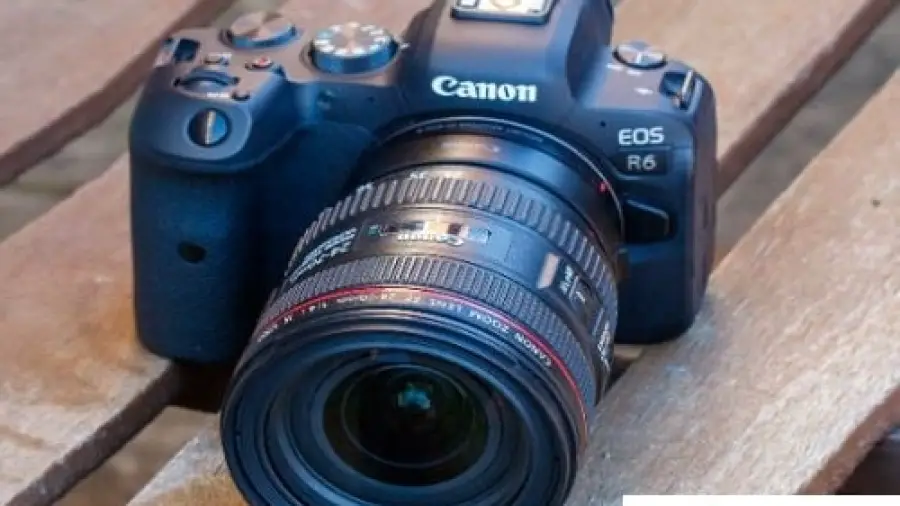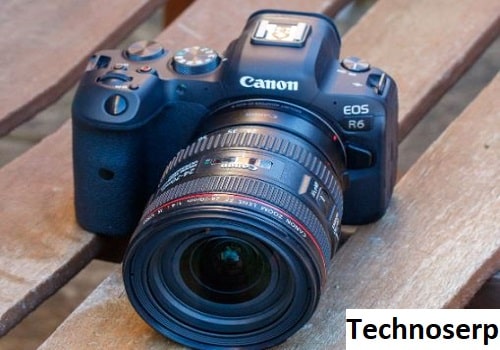Switching from DSLR to mirrorless cameras raises a big question. Can you use your trusty old lenses on the new camera? If you already own DSLR lenses, you might wonder whether you can use them on your new mirrorless camera. Let’s explore the possibilities and considerations.
In this article, we will dive into this topic. We will explain everything with simple words!
Can I Use DSLR Lens on Mirrorless Camera?
Here’s a concise and original guide on using DSLR lenses with mirrorless cameras:
Using DSLR Lenses on Mirrorless Cameras: A Practical Guide
Mirrorless cameras have gained popularity due to their compact size, lightweight build, and advanced features.
1. The Need for an Adapter
Mirrorless cameras lack the mirror box found in DSLRs, which affects the lens mount and flange distance. To use a DSLR lens on a mirrorless camera, you’ll need a lens adapter. These adapters bridge the gap between the lens and the camera body, allowing compatibility.
2. Pros of Using a Lens Adapter
- Wider Lens Selection: If you’ve invested in quality DSLR lenses, an adapter lets you continue using them on your mirrorless camera.
- Specific Lenses: Some lenses may not have a mirrorless equivalent. An adapter allows you to mount these specific lenses.
- Cost-Effective: Adapters are affordable compared to buying new mirrorless lenses.
- Performance Benefits: Some DSLR lenses offer better image stabilization when used with a mirrorless camera.
3. Cons of Using a Lens Adapter
- Autofocus and Image Quality: Adapters can impact autofocus speed and image quality. Research compatibility and user experiences.
- Compatibility Variability: Not all adapters work seamlessly with every camera. Check compatibility reports for your specific model.
- Missing Features: Certain features (e.g., eye autofocus) may not function with an adapter.
4. Tips for Using an Adapter
- Choose Quality: Invest in a well-made adapter to minimize performance issues.
- Test and Adjust: Experiment with different lenses and settings to find the best results.
- Understand Limitations: Accept that some features may not work as expected.
What’s the Difference Between DSLR & Mirrorless?
DSLR stands for Digital Single Lens Reflex. It uses a mirror to show you the image in the viewfinder.
Let’s dive straight into the key differences between DSLR and mirrorless cameras:
- Size and Weight:
-
- DSLR: Typically bulkier and heavier due to the mirror box and optical viewfinder (OVF).
- Mirrorless: More compact and lightweight, as they lack the mirror mechanism and use electronic viewfinders (EVFs) or LCD screens.
2. Autofocus:
-
- DSLR: Phase-detection autofocus through the OVF. May be slower in Live View mode.
- Mirrorless: Fast hybrid autofocus using on-sensor phase detection. Excellent for both stills and video.
3. Battery Life:
-
- DSLR: Generally better battery life due to optical viewfinders.
- Mirrorless: Shorter battery life due to EVFs or LCD screens.
4. Lenses:
- DSLR: Decades of existing lenses available. New releases are limited.
- Mirrorless: Growing lens selection, especially with manufacturers prioritizing mirrorless systems.
5. Video Capabilities:
-
-
- DSLR: Limited video features compared to mirrorless cameras.
- Mirrorless: Better for video recording, often with 4K capabilities.
-
6. Viewfinder:
- DSLR: OVF shows the actual scene optically.
- Mirrorless: EVF or LCD screen displays a digital representation.
7. Build and Durability:
-
-
- DSLR: Sturdy build, weather-sealed options.
- Mirrorless: Varies; some mirrorless cameras are also weather-sealed.
-
8. Shooting Speed:
-
-
- DSLR: Generally slower burst rates.
- Mirrorless: Faster continuous shooting speeds.
-
9. Image Stabilization:
- DSLR: Some models lack in-body image stabilization (IBIS).
- Mirrorless: Many offer 5-axis IBIS for stabilized shots.
10. Personal Preference:
-
-
- DSLR: Some photographers prefer the traditional feel and optical viewfinder.
- Mirrorless: Often the better choice for most people due to advancements and versatility.
-
Mirrorless cameras don’t have this mirror. They are often lighter and smaller.
Lens Mount and Compatibility
A lens mount is like a shoe. Each brand has its type.
Most DSLR lenses don’t fit mirrorless cameras out of the box. Their mounts are different.
Using Adapters to Fit Lenses
Adapters are special tools that help fit lenses on different cameras. Think of them as shoe insoles.
You need the right adapter. It changes the mount type to fit your camera.
| DSLR Lens Type | Adapter Needed | Mirrorless Camera Brand |
|---|---|---|
| Canon EF | Canon EF-M Adapter | Canon Mirrorless |
| Nikon F | Nikon FTZ Adapter | Nikon Mirrorless |
| Sony A | Sony LA-EA Adapter | Sony Mirrorless (E-mount) |
Pros and Cons of Using Adapters
Pros:
- Save Money: Use old lenses on new cameras.
- More Choices: Use lenses from many brands.
- Keep Quality: Good adapters don’t harm image quality.
Cons:
- Slight Loss in Performance: Some features may not work as well with adapters.
- Extra Weight: Adapters add to the size and weight of the camera setup.
- Cost: Good adapters aren’t always cheap.
Important Tips for Using Adapters
- Buy adapters that support auto-focus. It lets your camera focus automatically.
- Get adapters made by your camera brand. They often work better.
- Be gentle when attaching the adapter. Don’t break your camera or lens!
Does the Image Quality Change?
Good adapters keep the image quality the same. They act like a part of the camera.
Final Thoughts
Using DSLR lenses on mirrorless cameras is possible! With the right adapter, you can use your favorite lenses on your new camera.
Enjoy taking pictures without having to buy all new gear!
Read also more related topics: How To Disable Your Ring Camera?
Frequently Asked Questions For Can I Use Dslr Lens On Mirrorless Camera
Can Dslr Lenses Fit Mirrorless Cameras?
DSLR lenses can be used on mirrorless cameras with appropriate adapters. However, functionality and performance may vary depending on compatibility.
Are Adapter Rings Needed For Lens Compatibility?
Yes, to mount a DSLR lens onto a mirrorless camera body, a compatible adapter ring is typically required to ensure proper connection and functionality.
Will Autofocus Work With Adapted Lenses?
Autofocus may work with adapted DSLR lenses on mirrorless cameras, but speed and accuracy could be affected due to differing technologies.
Is Image Quality Affected By Using Adapters?
Image quality using adapters can remain high, yet it’s essential to use high-quality adapters and compatible lenses to ensure optimal results.
Do Mirrorless Cameras Affect Lens Focal Length?
Mirrorless cameras do not inherently affect lens focal length, but sensor size can impact the effective field of view, similar to DSLR cameras.
Can I Use Third-party Lenses On My Mirrorless Camera?
Third-party lenses can be used on mirrorless cameras with the right adapter, but it’s crucial to check compatibility for best performance.

